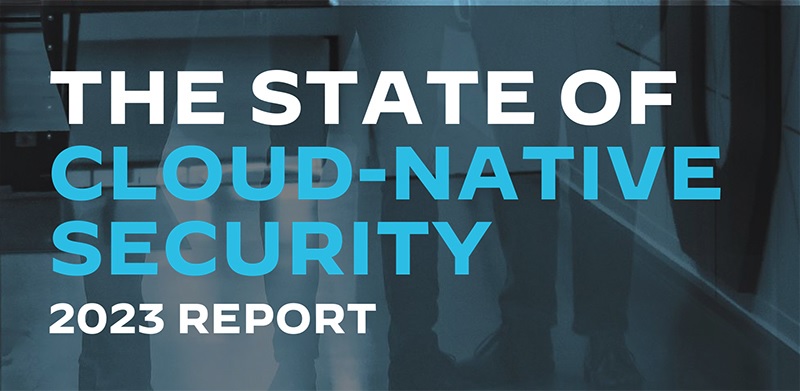JFrog announced a new machine learning (ML) lifecycle integration between JFrog Artifactory and MLflow, an open source software platform originally developed by Databricks.
With organizations of all sizes moving more of their operations to the cloud, a majority are struggling to automate cloud security and mitigate risks, according to the 2023 State of Cloud-Native Security Report, a Palo Alto Networks survey of more than 2,500 C-level executives around the world.

It's one reason why many companies are trying to improve security earlier in the development process, and looking for fewer vendors that can offer more security capabilities.
Here are some of the survey findings:
Cloud Use Has Grown, Along With Security Concerns
The expansion of hybrid work during the pandemic drove organizations to expand their use of clouds by more than 25%. As a result, DevOps teams are being pressed to deliver production code at warp speed — making application security more complex, and putting pressure on security organizations to keep pace.
Most Organizations are Slow to Detect and Respond to Threats
90% of organizations surveyed said they cannot detect, contain and resolve cyber threats within an hour. Bad actors are working just as fast as developers to take advantage of organizations' vulnerabilities. What could go wrong often does go wrong and any cloud asset that is inadvertently exposed to the internet can be compromised within minutes. Detecting threats in real-time represents the new frontier of cloud security.
Teams Don't Understand Their Security Responsibilities
When asked about the challenges of moving to the cloud, respondents' top concerns remained unchanged from the 2020 report: struggles with comprehensive security, compliance, and technical complexity. A large majority (78%) of organizations said they have distributed responsibility for cloud security to individual teams, but almost half (47%) said a majority of their workforce does not understand their security responsibilities.
A Greater Need for Code-to-Cloud Security
As more applications are being built in the cloud using off-the-shelf software, there's a risk that any vulnerability in the development process could compromise an entire application later on. That's why more companies are encouraging a deeper level of engagement between application developers and security tools and teams — with 81% of respondents saying they have embedded security professionals inside their DevOps teams.
"With three out of four organizations deploying new or updated code to production weekly, and almost 40% committing new code daily, no one can afford to overlook the security of cloud workloads," said Ankur Shah, SVP, Prisma Cloud, Palo Alto Networks. "
As cloud adoption and expansion continues, organizations need to adopt a platform approach that secures applications from code to cloud across multicloud environments."
Moving Towards Consolidation
Three quarters of the leaders surveyed say they struggle to identify which security tools are necessary to achieve their objectives. This has led many of them to implement numerous single point solutions — with the average organization using more than 30 security tools, including six to 10 dedicated to cloud security.
The sheer number of security tools makes it difficult for leaders to have in-depth visibility into their entire cloud portfolio.
76% of survey respondents reported that using multiple security tools creates blind spots that affect their ability to prioritize risk and prevent threats.
And 80% said they would benefit from a centralized security solution that sits across all of their cloud accounts and services.
A Clear Path Forward
Despite the upheaval caused by the pandemic, organizations have mostly been able to succeed in their cloud expansions — and organizations that made cloud infrastructure a strategic focus across the business were generally more successful. This makes cloud security a clear enabler of business outcomes.
Of course better security does not guarantee success. But having security under control — consolidating tools and vendors and using proven DevSecOps and security automation strategies — lets development teams do their jobs better and gives organizations the tools they need to succeed.
Industry News
Copado announced the general availability of Test Copilot, the AI-powered test creation assistant.
SmartBear has added no-code test automation powered by GenAI to its Zephyr Scale, the solution that delivers scalable, performant test management inside Jira.
Opsera announced that two new patents have been issued for its Unified DevOps Platform, now totaling nine patents issued for the cloud-native DevOps Platform.
mabl announced the addition of mobile application testing to its platform.
Spectro Cloud announced the achievement of a new Amazon Web Services (AWS) Competency designation.
GitLab announced the general availability of GitLab Duo Chat.
SmartBear announced a new version of its API design and documentation tool, SwaggerHub, integrating Stoplight’s API open source tools.
Red Hat announced updates to Red Hat Trusted Software Supply Chain.
Tricentis announced the latest update to the company’s AI offerings with the launch of Tricentis Copilot, a suite of solutions leveraging generative AI to enhance productivity throughout the entire testing lifecycle.
CIQ launched fully supported, upstream stable kernels for Rocky Linux via the CIQ Enterprise Linux Platform, providing enhanced performance, hardware compatibility and security.
Redgate launched an enterprise version of its database monitoring tool, providing a range of new features to address the challenges of scale and complexity faced by larger organizations.
Snyk announced the expansion of its current partnership with Google Cloud to advance secure code generated by Google Cloud’s generative-AI-powered collaborator service, Gemini Code Assist.
Kong announced the commercial availability of Kong Konnect Dedicated Cloud Gateways on Amazon Web Services (AWS).
Pegasystems announced the general availability of Pega Infinity ’24.1™.




